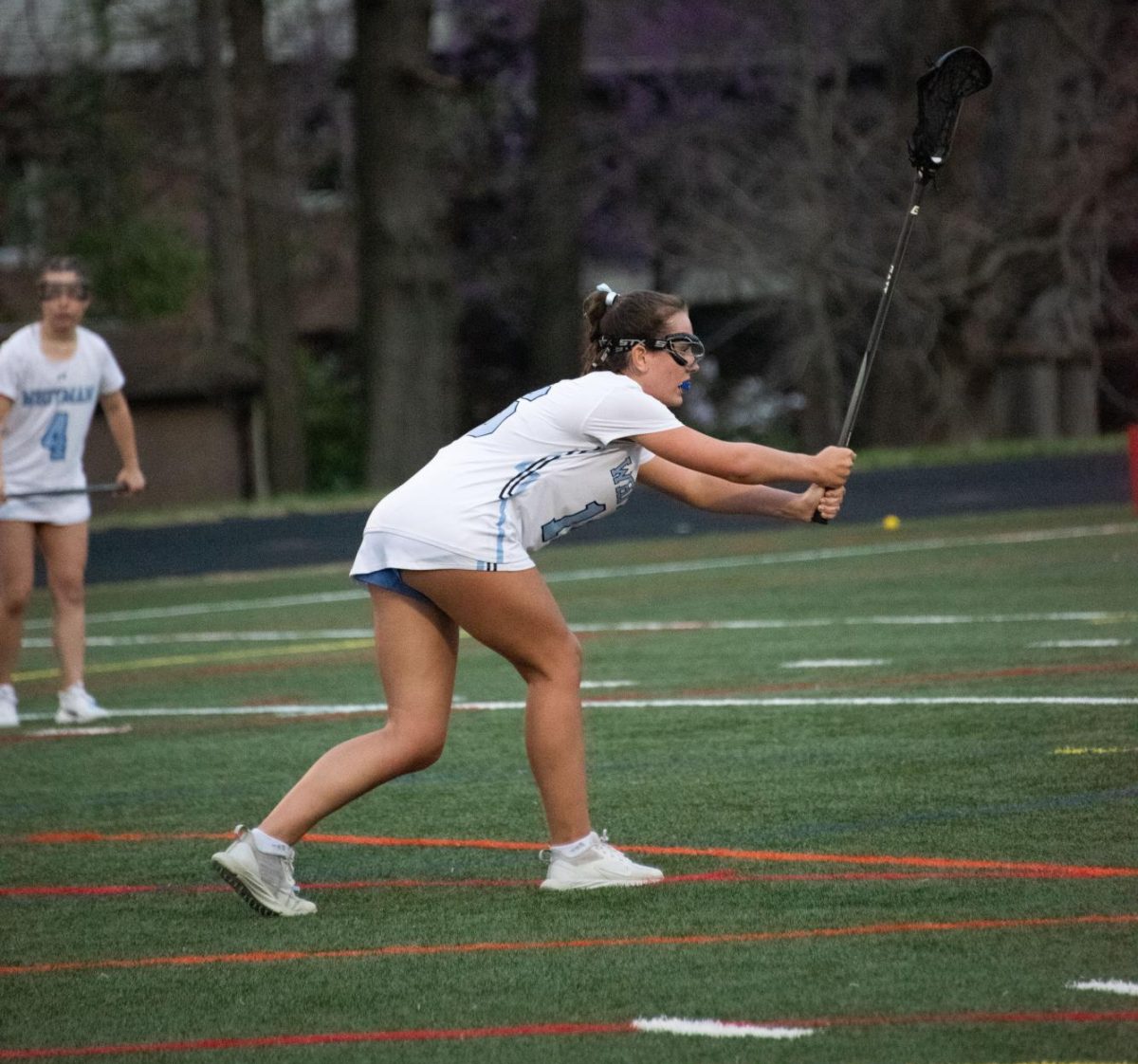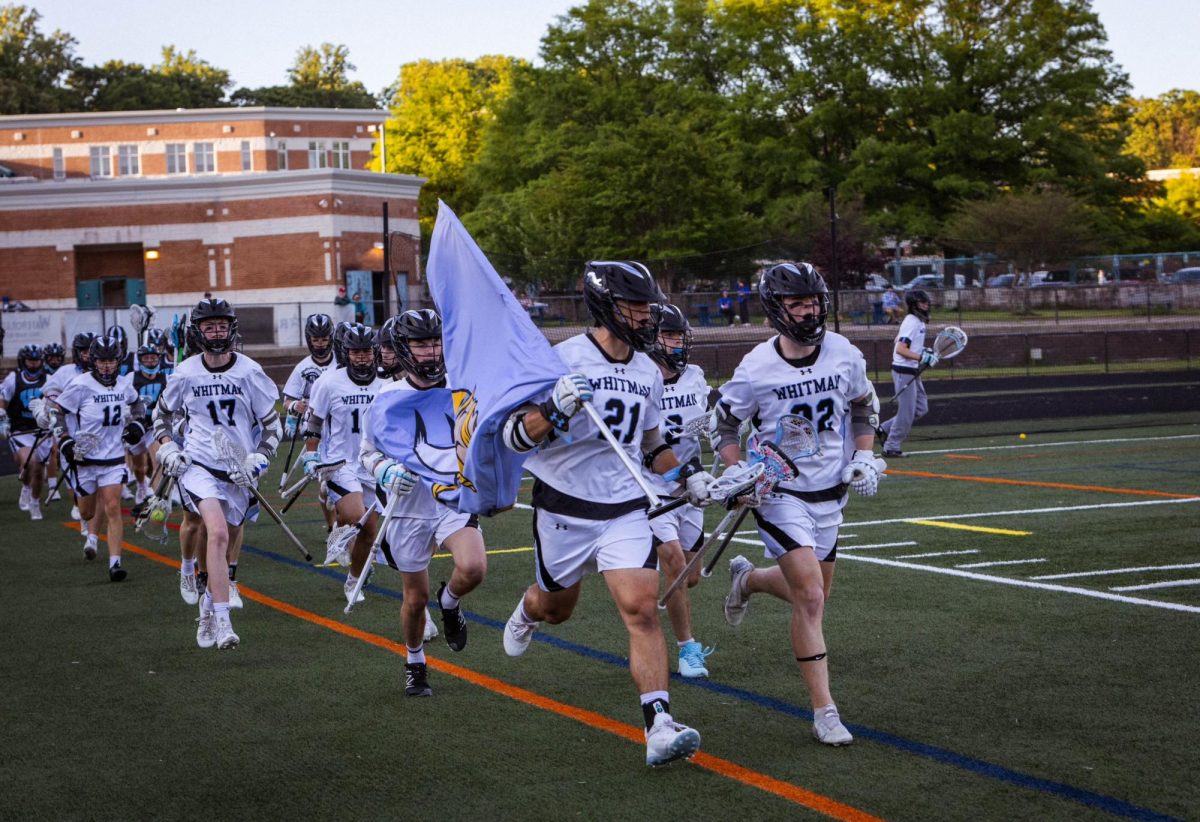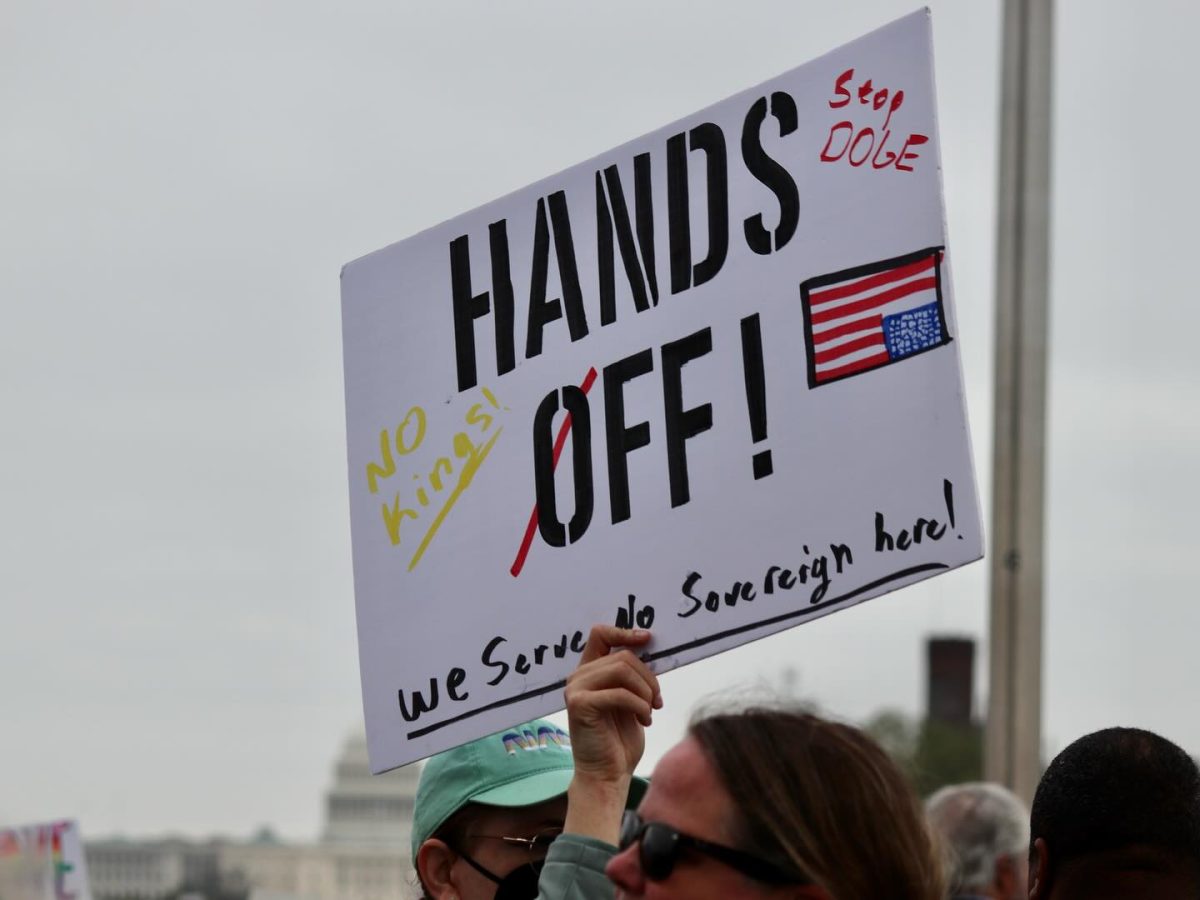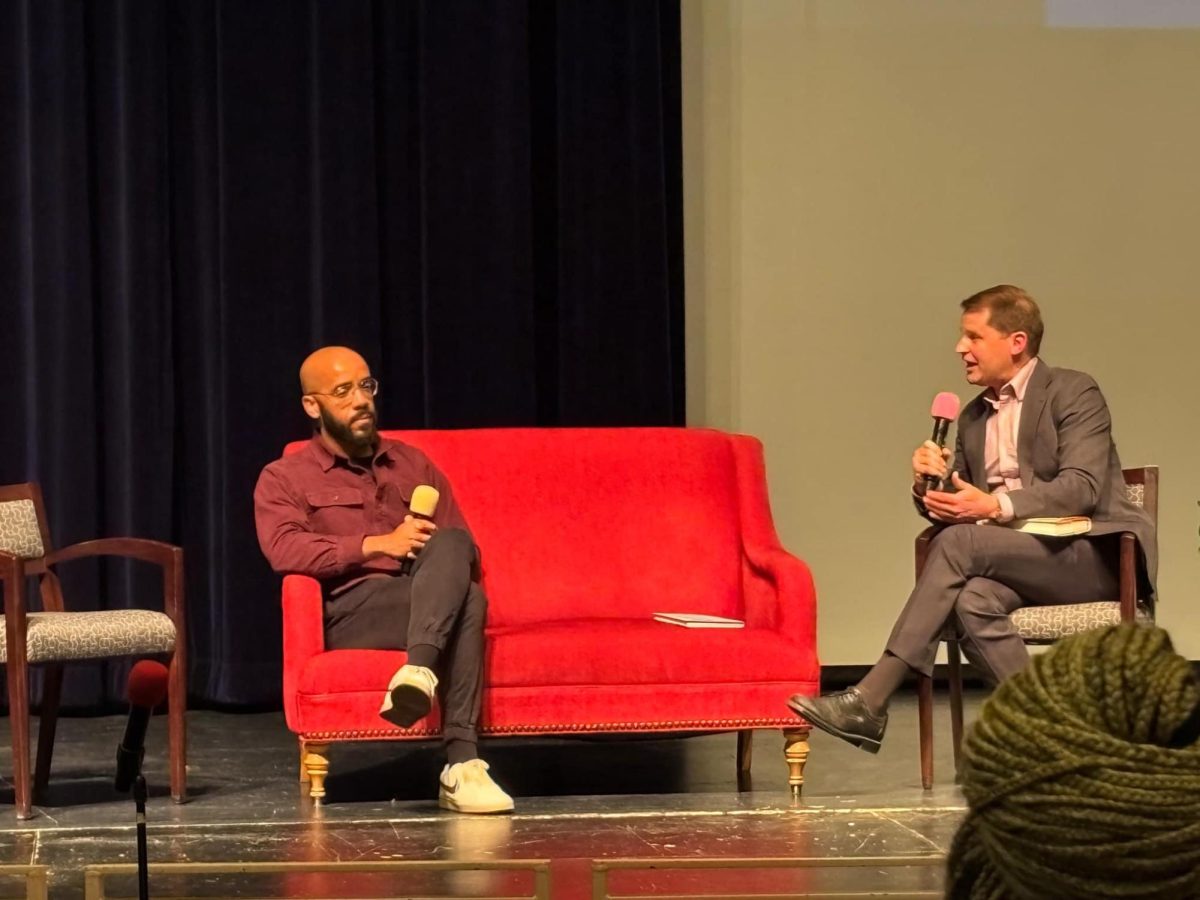FAIR Girls fights to end human trafficking, supports survivors
May 23, 2020
“Human trafficking” and “modern day slavery” aren’t words you hear every day in Bethesda — we often think they’re concentrated in international communities. But the reality is more grim than many would expect.
The International Labor Organization estimates that there are at least 40.3 million victims of human trafficking globally and hundreds of thousands of victims in the United States, 99% of whom are women. To combat this issue, activist Andrea Powell founded FAIR Girls — which stands for “Free, Aware, Inspired, Restored” — in 2003 after her friend was sold into forced marriage. It’s a non-profit organization which provides intervention and supportive care to survivors of human trafficking within the D.C. area and aims to eradicate trafficking through prevention education and policy advocacy. Since its founding, FAIR Girls has remained the only D.C. organization to provide housing tailored to the needs of trafficking survivors.
“The thing that’s so surprising to me is that trafficking is happening in Montgomery County,” said FAIR Girls board member Cheryl Battan, a former Whitman parent. “It’s happening a half hour from where you are any time of the day, mostly in hotels and apartments.”
According to the National Conference of State Legislatures trafficking activities are most commonly defined as the “recruitment, transportation, transfer, harboring or receipt of persons for the purpose of exploitation.” The NCSL states that traffickers force their victims into inhumane conditions: prostitution, forced labor and unsafe housing, among others.
Survivors are usually trafficked by people they know, including romantic partners and family members, according to Polaris Project, a non-profit organization that works to combat and prevent human trafficking and runs the National Human Trafficking Hotline.
Some survivors report directly to FAIR Girls, while the National Human Trafficking Hotline also refers callers to FAIR Girls. The police also direct some victims they find on the street to FAIR Girls.
Once in contact with a FAIR Girls representative, victims have the option to stay in FAIR Girls’ free housing, the Vida Home, which provides beds for up to six survivors at a time. Survivors can stay at the Vida Home for a maximum of 90 days before moving into a place of their own. The Vida Home’s address isn’t available publicly, so it offers a safe place for trafficking victims to transition out of slavery without the possibility of their traffickers finding them.
“It’s not a shelter at all,” Battan said. “It’s a home.”
Forty of the 52 survivors that FAIR Girls supported in 2019 stayed at the Vida Home, which grants from the federal government, D.C. city governments and Montgomery County governments pay for. The other 12 survivors lived elsewhere, in housing supported by FAIR Girls’ partner organizations but still receiving help from the FAIR Girls staff. At the Vida Home, survivors work with one of three case managers to determine a set of goals and a step-by-step plan for getting acclimated to their new, free life.
“Case managers provide a whole slew of services from legal and medical services to mental health and group therapy,” Battan said. “It’s very individualized because we meet the girls and young women where they are.”
Case management coordinator Jewel Wright currently works with 13 survivors and meets with each of them once a week, connecting them to healthcare, transportation, social services and other housing programs depending upon their needs.
“When I meet with a new client, I let them set the pace,” Wright said. “They will open up in their own time. I start out by just listening to them to make them feel comfortable, which allows me to build rapport.”
FAIR Girls also offers a prevention education program called “Tell Your Friends” to middle and high school students in all Montgomery County schools, as well as other nearby counties. FAIR Girls representatives have been trying to plan when to give the presentation at Whitman, Battan said. The goal of the program is to teach students the signs of trafficking and what they can do if they suspect someone they know is being trafficked.
“There are so many misconceptions about who the perpetrators are and who the victims are,” Battan said. “The Tell Your Friends program addresses those misconceptions and discusses signs that you can look for if you suspect that someone you know might be being trafficked.”
Human Trafficking 101, FAIR Girls’ adult education program, teaches police forces how to better identify and keep trafficking victims safe. It also educates medical professionals on how to identify trafficking victims. Oftentimes, as they are being trafficked, victims escape to the hospital seeking medical care.
FAIR Girls’ staff, most of whom are licensed social workers, can sign up to ride with police officers on routine calls — victims are usually outside on streets between 3 a.m. and 8 a.m. — to talk to human trafficking victims. It often takes three or four interactions with the same female survivor for them to actually open up and trust a staff member, Battan said. This is because they’re likely scarred from the trauma they’ve been through and the betrayal by their trafficker, someone who likely promised to care for them, Battan said. Staff members give victims toiletries and chapsticks discreetly inscribed with FAIR Girls’ hotline, which is available Monday through Friday from 9 a.m. to 5 p.m.
Even though traffickers coerce their victims into committing crimes, police often charge victims for crimes they committed while being trafficked. FAIR Girls works to expunge these crimes from survivors’ records because a criminal record can make it difficult for them to get jobs and homes, Battan said.
FAIR Girls executive director Erin Andrews is a former federal prosecutor at the U.S. Attorney’s office, where she prosecuted child abuse, domestic abuse and human trafficking cases. Andrews and the prosecutors she works with seek expungement for trafficking-related crimes including buying and selling drugs, holding guns, driving without a license or under the influence and prostiution, which is usually the easiest to expunge because of its general association with forced labor, Andrews said.
“When I prosecuted my first human trafficking case, I realized that it’s very challenging to effectively prosecute a trafficker without making sure that the victims are in a stable enough place to cooperate with the investigation,” Andrews said.
Andrews first joined FAIR Girls as the director of policy when she saw a lack of available services for trafficking survivors.
“I realized that when I wanted to refer victims to personalized services, there just weren’t enough of them, especially when I had two or three clients at a time,” Andrews said.
Because she’s actually prosecuted these cases, Andrews feels like police officers and other prosecutors are more inclined to listen to her. Even so, it’s often very difficult to get charges expunged, especially when traffickers indoctrinate survivors not see themselves as a victim — a lot of victims have never even heard the term “human trafficking” before, Battan said.
In an attempt to rectify this problem, FAIR Girls helped the D.C. City Council pass the Trafficking Survivors Relief Amendment Act in April 2019, an act which introduces a statute allowing human trafficking survivors to vacate their criminal records for crimes that they were forced to commit while victims.
“Traffickers will often tell victims, ‘No one is going to believe you. You’re the one doing the crime, so you’re going to have to pay the price,’” Andrews said. “When law enforcement officers and prosecutors charge victims, it fulfills that promise that the traffickers told to the victim. This law will prevent prosecutors from reinforcing the idea that their traffickers are the only person who can care for the victims.”
The women and girls served by FAIR Girls will often stop by the drop-in center, the organization’s administrative building, if they are living independently nearby. FAIR Girls also checks in with the survivors via phone calls, and some return to the Vida Home if they need more support.
“A lot of our clients cycle back into services several times,” Andrews said. “Some people view that as failure, but we view that with respect because it means that they viewed us as a safe place that they could come back to without judgement.”
Volunteers can teach a yoga class, help with resumes, demonstrate job interview skills and teach personal finance skills at the drop-in center. Often, people who have had similar experiences want to help other people going through the same thing, Battan said.
“A lot of the FAIR Girls staff are themselves victims of human trafficking or similar crimes,” Andrews said. “Any policy position that we fight for is really rooted in the actual lived experiences of survivors.”










